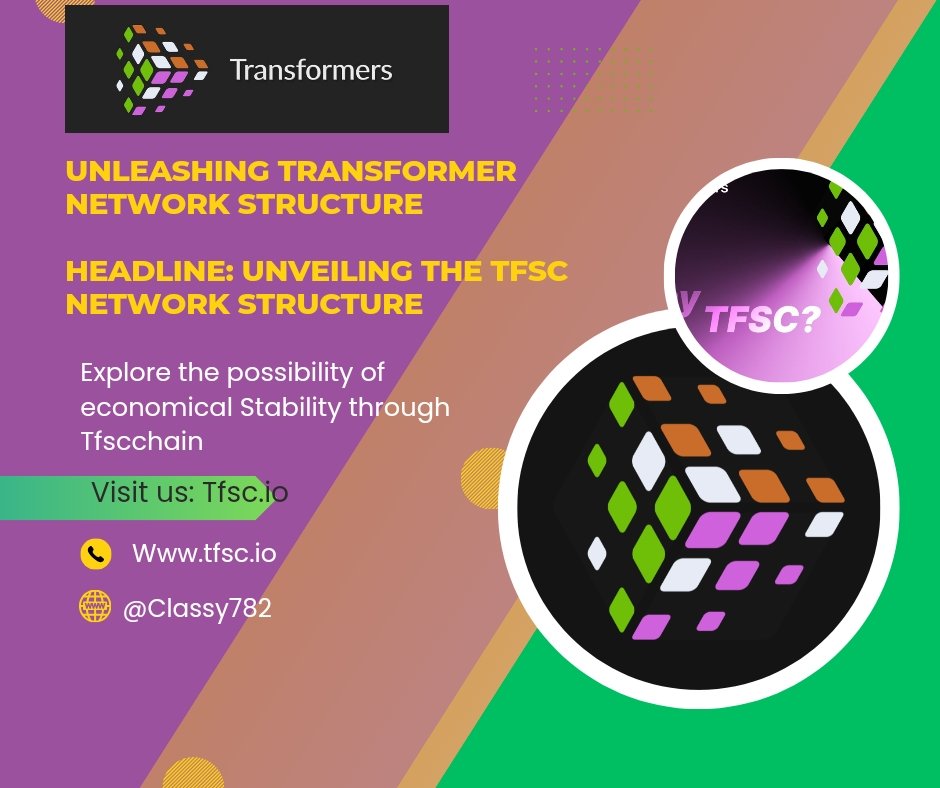Unleashing Transformer Network Structure

HEADLINE:

Unveiling the Tfsc Network Structure
Transformers chain adopts a fully connected decentralized and distributed P2P network structure. The transformer chain is connected to the blockchain network through P2P. In the blockchain network, all nodes are equal, acting as both clients and servers.
☑️Network Structure
In a transformer chain, all nodes are equal and possess all the characteristics of a node.
Archiving Preserves the historical state of all blocks, with the world state corresponding to any block in history saved on the node.
Validation Directly validates the validity of the transaction data locally. Broadcast Participate in the whole network broadcast of block information and transactions.
Synchronization Node After the new node joins the block, it will be discovered and connected to broadcast other nodes.
☑️How to identify and authenticate each node?
Each verification node is marked with a unique ID through the node list to ensure the authenticity of the verification node in the network. By validating the node list data, the verification nodes meeting the conditions are gathered into the verification pool.
☑️Why Use Fully Connected & Quantity Limit?
Transformers chain uses a fully connected approach in its design, which has the characteristics of high throughput, high reliability, and low latency. To maintain these advantages, Transformers can maintain the best performance and security when the number of network nodes is kept between 500-1000.
☑️Network communication process
Transformers use relatively stable TCP point-to-point communication. When using TCP communication, messages are first stored in the cache, then distributed by the transaction distributor, and finally processed by various processing functions.
This will cause great difficulty in quickly reading subsequent data and will reduce the timeliness of network data. Transformers are designed to solve this problem. At the application level, the Transformers network sacrifices the number of nodes to improve network nodes, and can quickly complete full network communication within the service quantity level.
☑️Network Function Module
TCP registration steps
The sending node sends a registration request to another registered node. If two nodes are not connected, they will establish a connection first.
The sending node processes the registration response from the registered nodes.
☑️Heartbeat mechanism
If a node goes offline and does not reconnect within the specified time, the heartbeat number will change to 0, and the node information will be deleted
Steps:
The node reduces the heartbeat count of all known nodes by 1 and sends a ping request.
When the receiving node successfully receives the ping request, it resets the heartbeat of the sending node’s heartbeat count and sends a pong request.
When the sending node successfully receives the pong request, it resets the receiving node's heartbeat count and updates its node information.
